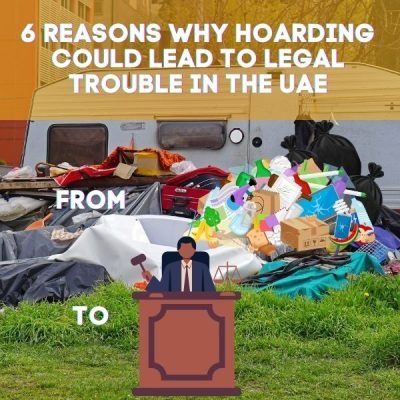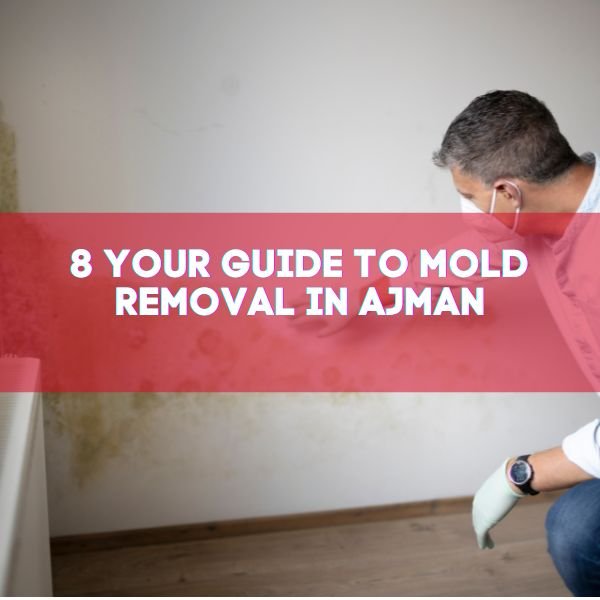Hoarding is often viewed through a personal or psychological lens, but what many don’t realize is that extreme clutter can also have serious legal consequences — especially in highly regulated environments like the UAE. Beyond being a health and safety issue, hoarding may violate property regulations, municipal codes, or even national health laws.
For residents and property owners in the UAE, understanding the legal implications of hoarding is not just important — it’s essential. Bio One UAE has seen firsthand how seemingly private hoarding issues can escalate into full-blown legal problems, fines, or even evictions if left unchecked.
In this article, we’ll explore 6 reasons why hoarding can put you at risk of breaking the law — and why seeking professional help early can prevent these problems from spiraling out of control.
Table of Contents
Toggle1. Violation of Municipality Health Codes
In the UAE, each emirate enforces strict public health and sanitation standards through its respective municipality. These rules apply not just to businesses and public facilities, but also to private residences. When a home becomes excessively cluttered or unsanitary due to hoarding, it may be in direct violation of these codes.
Municipal inspections, especially in apartment buildings or compounds, may trigger warnings or fines if the hoarded property is deemed a public health risk. Bio One UAE has worked with clients across Dubai, Abu Dhabi, Sharjah, and beyond who faced municipality orders due to neglected hoarding conditions.
2. Fire Safety Hazards
One of the most serious legal risks associated with hoarding is fire hazard. Accumulated paper, plastics, textiles, and even electrical obstructions can turn a property into a firetrap — putting not only the hoarder but also neighbors at risk.
According to UAE Civil Defence guidelines, any fire risks discovered in a property can lead to citations, mandatory clearance orders, or in extreme cases, legal charges. Hoarders who fail to comply with safety regulations may be held liable if fire-related damages occur.
3. Pest Infestations and Public Nuisance Laws
With hoarding often comes food waste, rotting items, and hidden water leaks — all of which attract pests like rodents, cockroaches, and termites. Once an infestation spreads beyond one unit to others in a building or neighborhood, legal complaints from other tenants or owners can follow.
In many Emirates, property management and municipality authorities have the right to issue fines or pursue legal action if a home is found to be the source of pest infestation. What began as a personal issue quickly becomes a community concern with legal repercussions.
4. Negligence Leading to Personal Injury Claims
Hoarding isn’t just a health risk for the person doing the hoarding — it’s also a danger to others, especially if they are invited into the hoarded space. Items piled high or obstructing walkways can lead to accidents, including trips, falls, or even worse, injuries from falling objects.
If a visitor, contractor, or even a neighbor suffers injury while on a property with hoarding, the property owner could be held liable for negligence. In the UAE, personal injury cases can lead to legal action, financial compensation claims, or even criminal charges if negligence is proven. Keeping a hoarded home safe from hazards is not only a matter of personal responsibility but also a legal one.
5. Breach of Rental Agreements and Eviction Risks
If you are renting a property and hoarding creates a situation that violates the terms of your lease, the landlord may have grounds to terminate the rental agreement. Hoarding can lead to property damage, pest problems, and unsanitary living conditions, all of which are typically prohibited in rental agreements.
Under UAE law, landlords are permitted to evict tenants who damage the property or violate health and safety conditions. Hoarding can result in immediate legal action from the landlord, including eviction notices, fines, and even lawsuits for property damage or lost rental income.
6. Environmental Hazards and Legal Liability
As hoarding piles up, it often leads to environmental concerns that can cause long-term damage to both the property and the surrounding area. Mold, mildew, and decaying waste can contaminate air quality, causing respiratory issues or allergic reactions. In some cases, hazardous chemicals or materials may be stored improperly, creating potential environmental hazards.
If hoarding leads to contamination that affects neighboring properties or public areas, the person responsible could face legal liability. Local environmental regulations require property owners to maintain safe and sanitary living conditions. Hoarding that leads to environmental harm may result in heavy fines or legal actions under UAE’s environmental protection laws.
4. Negligence Leading to Personal Injury Claims
Hoarding isn’t just a health risk for the person doing the hoarding — it’s also a danger to others, especially if they are invited into the hoarded space. Items piled high or obstructing walkways can lead to accidents, including trips, falls, or even worse, injuries from falling objects.
If a visitor, contractor, or even a neighbor suffers injury while on a property with hoarding, the property owner could be held liable for negligence. In the UAE, personal injury cases can lead to legal action, financial compensation claims, or even criminal charges if negligence is proven. Keeping a hoarded home safe from hazards is not only a matter of personal responsibility but also a legal one.
5. Breach of Rental Agreements and Eviction Risks
If you are renting a property and hoarding creates a situation that violates the terms of your lease, the landlord may have grounds to terminate the rental agreement. Hoarding can lead to property damage, pest problems, and unsanitary living conditions, all of which are typically prohibited in rental agreements.
Under UAE law, landlords are permitted to evict tenants who damage the property or violate health and safety conditions. Hoarding can result in immediate legal action from the landlord, including eviction notices, fines, and even lawsuits for property damage or lost rental income.
6. Environmental Hazards and Legal Liability
As hoarding piles up, it often leads to environmental concerns that can cause long-term damage to both the property and the surrounding area. Mold, mildew, and decaying waste can contaminate air quality, causing respiratory issues or allergic reactions. In some cases, hazardous chemicals or materials may be stored improperly, creating potential environmental hazards.
If hoarding leads to contamination that affects neighboring properties or public areas, the person responsible could face legal liability. Local environmental regulations require property owners to maintain safe and sanitary living conditions. Hoarding that leads to environmental harm may result in heavy fines or legal actions under UAE’s environmental protection laws.













